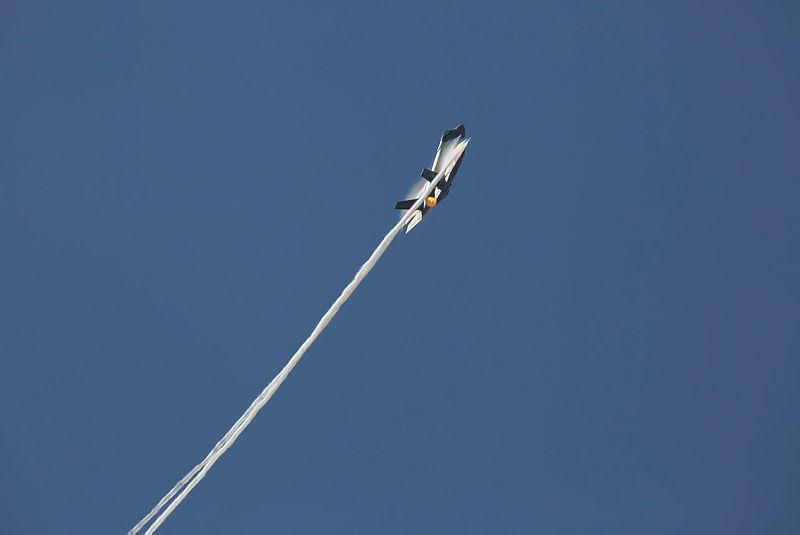
Australia has so far managed the Covid-19 pandemic as well as anywhere else on the planet, except perhaps our near neighbour New Zealand or the vibrant techno-democracy of Taiwan.
That’s lucky, because if our federal, state and territory governments and our population had not cooperated on the drastic social-distancing measures put in place in the past few weeks, the horrific scenes we’ve seen in New York would be happening right now in Sydney, Melbourne, Adelaide, Perth and Brisbane.
In that alternative universe that we were just a few days and decisions away from, we wouldn’t be hearing restive Australians asking what all the fuss is about. We’d all be angry and energised about the lack of protective equipment and ventilators in our overwhelmed hospitals and we’d all be asking why our governments and our companies couldn’t supply us with what we urgently needed.
That alternative future we have so far narrowly avoided has a close connection to our $40 billion per annum defence organisation, because the Department of Defence and the Australian Defence Force have some eerily similar needs for rapid development and production of technology.
So, defence is also the organisation that we should be able to turn to for rapid development and production of systems—whether ventilators or other equipment—in future crises, military or otherwise. That’s the advantage organisations with big budgets and high technology needs have, if orchestrated and organised properly.
It’s not news to anyone involved in defence policy and capability that the rapid change in civil technology is also affecting the balance of advantage between the world’s militaries. For Australia and our allies, there’s a lot of bad news here about Chinese, Russian, Iranian and even North Korean militaries’ and intelligence services’ rapid development and adoption of technologies. Terrorist organisations like Islamic State (no, they’re not dead, not even resting) are also skilled at rapidly making and fielding very dangerous systems—improvised explosive devices, armed drones and even cyber systems.
Depressingly, our defence organisation, like numerous Western militaries, is struggling to cope with the pace of change. Instead, it has doubled down on its long lead time approach to developing and acquiring military equipment, which is why we see the bulk of the government’s $200 billion integrated investment program for defence going into ships, submarines and big armoured vehicles that are taking years—decades, in the case of the ships and future submarines—to design, build and get into service.
Even if these lumbering capability programs are still useful when they eventually turn up, they won’t succeed alone. The big manned subs will need to work with legions of small unmanned, disposable systems that can inform and protect them against enemy ‘kill webs’ of manned and unmanned systems. The same is true for the air force’s joint strike fighters, the navy’s future frigates and the army’s big armoured vehicles.
So, our defence organisation will need to do two things. Operationally, Defence and the ADF need to be able to respond to technological and tactical surprises, like when an adversary unexpectedly fields a new and highly destructive weapon such as a directed energy gun, or uses a biotech weapon that ‘out-stealths’ the most advanced system in Australia’s or America’s arsenal. And, to do so, they must be able to out-innovate adversaries. That’s done by developing and fielding new weapons and protective systems very fast, whether they are countermeasures that protect against the adversary’s weapons or even more powerful or effective weapons that overturn the adversary’s advantage.
The ADF has done this before as a one-off, crisis-driven exercise. That story is told in Brendan Nicholson’s history of the Bushmaster protected mobility vehicle and the counter-IED systems used with it during Australia’s part in the Afghanistan war. So, it’s possible.
But Defence needs to get beyond one-off, ad hoc solutions for this abiding technological problem. That can only be done by creating a focal point in Defence that has this as its primary task.
A seed for this approach is Defence Minister Linda Reynold’s announcement that Chief Defence Scientist Tanya Monro is heading up a new Defence-led rapid response group. Its task is to ‘help increase domestic stocks of invasive ventilators, as part of Australia’s response to the Covid-19 outbreak’. It will do this by coordinating ‘the activities between public and private stakeholders, … harnessing Defence Science and Technology’s capabilities and facilities, and utilising existing expertise in specialist research engineering and technology development’.
There’s a deep irony here, though: the government is creating this group because Defence has the latent capacity to do this urgent work well by using its own scientific and engineering expertise, and by taking advantage of partners it already has in academia and industry. But it has no standing arrangement or dedicated section that takes advantage of these latent strengths and applies them to meet the ADF’s own already obvious and urgent military needs.
The new group will undoubtedly do fantastic work. The obvious question, however, is why such a group wasn’t already part of Defence’s permanent structure. If it had been, not only would the ADF be able to keep up with and outpace potential adversaries’ capability development, but Defence would also not need to stand up an ad hoc group in a time of crisis. We would be weeks ahead on the ventilator challenge by now.
May Monro succeed beyond her and Reynolds’s wildest expectations. And may this lead to Defence doing what the future military operational environment, and our current pandemic, require: creating and operating a permanent, well-resourced rapid response group. That will mean that in future times of military conflict, or grave national crisis like we have now, Australia will be able to rapidly develop, manufacture and operate machines and systems we need urgently in numbers. This is only going to be more necessary in our turbulent future.